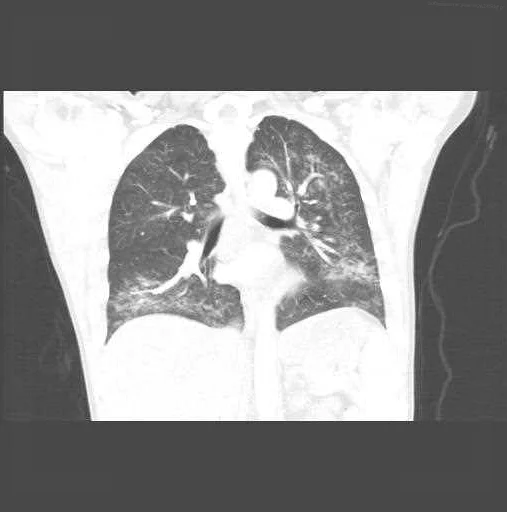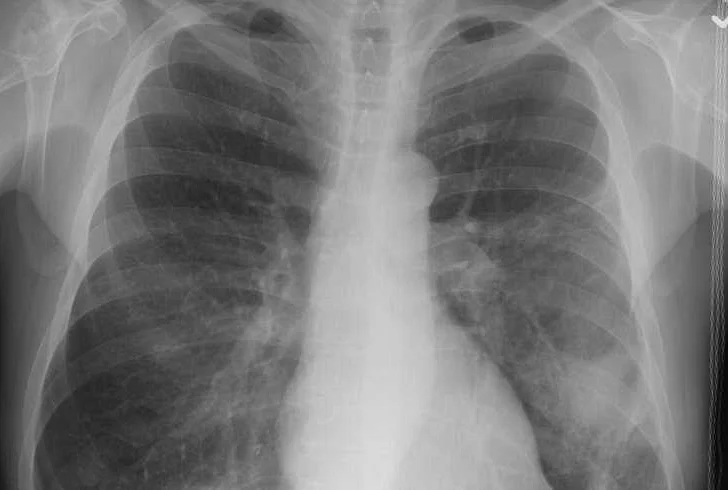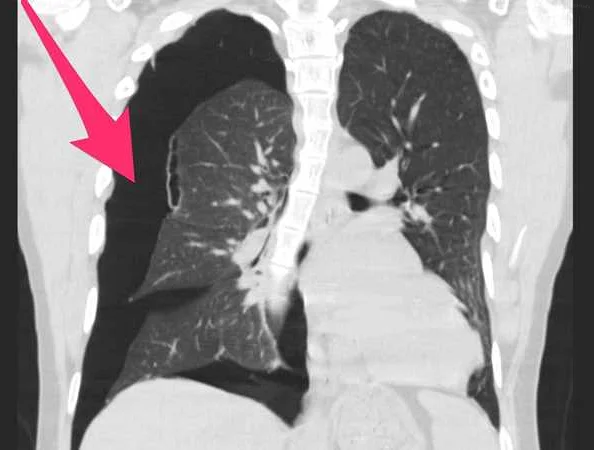Identifying a Possible Cause of the Mysterious Lung Disease in Vapers in the United States
Содержимое
Scientists in the United States have identified a potential cause of the mysterious lung disease affecting vapers. This discovery sheds light on the alarming trend and provides crucial information for public health officials and individuals using e-cigarettes.
The mysterious lung disease that has been affecting vapers in the United States may finally have a possible cause. After months of investigation, researchers have identified a potential culprit: vitamin E acetate. This finding could be a breakthrough in understanding the illnesses that have been linked to e-cigarette use.
According to the Centers for Disease Control and Prevention (CDC), vitamin E acetate is commonly used as a thickening agent in e-cigarette vaping liquids that contain THC, the psychoactive component of marijuana. While it has been known to be safe for topical use and consumption, inhaling it into the lungs may be a different story.
Why would vitamin E acetate cause lung disease?
When vitamin E acetate is heated and inhaled, it may disrupt the normal functioning of the lungs. This can lead to a condition known as lipoid pneumonia, which is characterized by the inflammation of the lung tissue. The symptoms of lipoid pneumonia include shortness of breath, chest pain, and coughing.
It is important to note that vitamin E acetate has only been identified as a possible cause, and further research is needed to confirm its role in these lung diseases. Other factors, such as faulty devices or contaminants in the vaping liquids, may also be contributing to the illnesses.
What does this mean for vapers?
This discovery highlights the potential dangers of vaping and emphasizes the need for more regulation and research in the industry. Vapers are urged to exercise caution and consider the potential risks associated with e-cigarette use. If you experience any symptoms related to lung disease, it is important to seek medical attention promptly.
In the meantime, health officials continue to investigate the outbreak of lung diseases associated with vaping. Their aim is to gather more information and develop strategies to prevent further illnesses.
New Study Links Vaping to Mysterious Lung Disease

A new study has identified a possible link between vaping and the mysterious lung disease that has affected numerous people in the United States. The study, published in the medical journal The Lancet Respiratory Medicine, examined lung tissue samples from 17 patients with the disease and found evidence of a toxic chemical compound.
The researchers discovered that the compound, known as vitamin E acetate, was present in all of the lung tissue samples. Vitamin E acetate is commonly used as a thickening agent in e-cigarette liquids, especially those containing THC, the psychoactive component of marijuana. The study suggests that inhaling this compound may be responsible for the lung damage seen in these patients.
Previous investigations into the cause of the lung disease had focused on contaminants or other chemicals found in e-cigarettes, but this study is the first to identify a specific compound consistently present in affected individuals. Vitamin E acetate has been previously recognized as safe for use in topical products and dietary supplements, but its safety when inhaled is still under debate.
The findings from this study raise concerns about the potential health risks associated with vaping. While e-cigarettes were initially marketed as a safer alternative to smoking, this recent outbreak of lung disease has demonstrated that they may not be without their own dangers. The long-term effects of vaping are still largely unknown, and further research is needed to fully understand the risks involved.
Health officials and medical professionals are urging individuals, especially young people, to reconsider the use of e-cigarettes until more is known about their safety. The Centers for Disease Control and Prevention (CDC) has advised against vaping, particularly with products containing THC, and has recommended that individuals avoid using e-cigarettes altogether.
As investigations continue, it is crucial for the public to stay informed and cautious when it comes to vaping. This new study serves as a reminder that seemingly harmless activities can sometimes have serious consequences for our health.
Chemical Compound Found in Vaping Products Suspected as Cause

A chemical compound commonly found in vaping products is believed to be the primary cause of the mysterious lung disease affecting numerous individuals in the United States. The compound, known as vitamin E acetate, has been identified in samples taken from patients experiencing respiratory symptoms after using e-cigarettes or vaping devices.
Vitamin E acetate is often used as a thickening agent in THC-containing vaping products, which are commonly obtained from unregulated sources. It is believed that inhaling this compound into the lungs can cause severe lung damage and lead to symptoms such as coughing, shortness of breath, and chest pain.
The presence of vitamin E acetate in the lungs of affected individuals suggests that there may be a direct correlation between its use in vaping products and the development of the lung disease. While further research is needed to establish a definitive link, health officials are urging individuals to avoid the use of vaping products, particularly those obtained from illicit sources.
- Health agencies are working to increase public awareness of the potential dangers associated with vaping and to encourage individuals to seek medical attention if they experience any respiratory symptoms.
- Regulatory measures are being considered to limit the use of vitamin E acetate in vaping products and to ensure the safety of e-cigarette users.
- It is crucial for individuals to be aware of the risks involved in using vaping products and to make informed decisions about their health.
As the investigation into the mysterious lung disease continues, identifying the specific chemical compounds and substances responsible for the illness is essential in developing effective prevention and treatment strategies.
Increased Cases of Lung Disease in Vapers Raise Concerns

In recent months, there has been a significant increase in the number of reported cases of lung disease among individuals who vape. This alarming trend has raised major concerns within the medical community and prompted a thorough investigation into the potential causes of these illnesses.
The Centers for Disease Control and Prevention (CDC) has reported over X cases of mysterious lung disease associated with vaping, with X confirmed deaths. These numbers continue to rise, leaving health officials scrambling to find answers and solutions.
While the exact cause of the lung disease remains unknown, there are several theories being explored. Some researchers suspect that certain chemicals or substances present in e-cigarette liquids may be responsible for the lung damage. Others believe that the heating element used in vaping devices could be releasing harmful toxins when heated to high temperatures.
Additionally, it is worth noting that many of the cases involve individuals who have used vaping products containing THC, the psychoactive component of cannabis. This has led experts to question whether the use of THC-containing vape products plays a role in the development of lung disease.
As investigations continue, health officials are urging vapers to exercise caution and consider the potential risks associated with vaping. They advise individuals experiencing any symptoms such as coughing, shortness of breath, chest pain, or fever to seek medical attention promptly.
Furthermore, regulatory bodies are taking steps to address the issue and ensure the safety of consumers. Some states have implemented temporary bans on flavored e-cigarettes, while others are considering stricter regulations on the sale and marketing of vaping products.
Overall, the increased cases of lung disease among vapers have sparked widespread concern and have highlighted the need for further research into the potential health risks associated with vaping. It is crucial for individuals, especially young adults and teenagers, to be aware of the potential dangers and make informed decisions about their health.
Experts Warn of Potential Health Risks Associated with Vaping

Vaping, the act of inhaling and exhaling vapor created by an electronic cigarette or similar device, has become increasingly popular in recent years. However, experts are issuing warnings about the potential health risks associated with this trend.
One concern is the use of e-liquids, which often contain nicotine, flavorings, and other chemicals. Nicotine is highly addictive and can have negative effects on the developing brain. In addition to nicotine, e-liquids may also contain harmful substances such as heavy metals, volatile organic compounds, and ultrafine particles.
Another concern is the lack of regulation and oversight in the vaping industry. As a result, there is limited information about the long-term health effects of vaping, especially in comparison to traditional cigarettes. While vaping may be perceived as a safer alternative to smoking, it is important to note that it is not without risks.
Some studies have indicated that vaping may increase the risk of respiratory and cardiovascular problems. Additionally, there have been cases of severe lung injury associated with vaping, with symptoms including coughing, shortness of breath, chest pain, and fever. The recent outbreak of a mysterious lung disease in vapers in the United States has further highlighted these concerns.
Experts are calling for further research to better understand the potential health risks of vaping. In the meantime, they urge individuals, especially young people and non-smokers, to avoid vaping altogether. It is essential to prioritize our health and make informed decisions when it comes to our well-being.